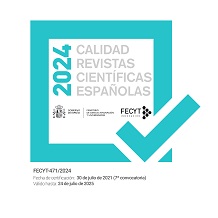Nursing presenteeism. Patient safety implications. Possibilities of control and reduction
Abstract
We begin to find studies and research oriented towards the idea that poorer health and welfare of health care workers may have important implications for quality of care and safety that patients receive. The emerging phenomenon of presenteeism, referred to those employees who despite being sick or injury that would force them to absent, report to work, serves as an example to try to explain this reality.Objectives: Try to answer the following questions: Is nursing a presentist profession?, Why nurses do not call in sick? What implications does have this behaviour for Patient Safety? What chance have nursing supervisors and managers of health institutions to control and reduce presenteeism in their organizations?
Methodology: A review of the available scientific evidence literature in Castilian and English between 1995 and 2011 was conducted in order to try to answer the following questions: Database used were Medline, Pubmed, Scopus, Cuiden, CSIC- ISOC y PsycINFO. Search was completed with references and intuitive search in Google. We found 57 items of which 48 were selected.
Results: The nursing profession, with care-and-welfare and education sector at the primary level are one of the professional groups with significantly higher rates of presenteeism compared with other professions. A large number of variables, both organizational and individual have been described as presenteeism predictors, i.e. facilitate and increase the likelihood that a sick nurse go to work.
Conclusions: There is still a small number of research focused on presenteeism in the field of health institutions. Experts in occupational health, health management or quality or care should include this new phenomenon in their agendas, designing research to try to find a better scientific evidence.
Downloads
-
Abstract626
-
PDF (Español (España))497
-
PDF497
The works published in this magazine are subject to the following terms:
1. The Publications Service of the University of Murcia (the publisher) preserves the copyright of the published works, and encourages and allows the reuse of the works under the license for use stated in point 2.
© Servicio de Publicaciones, Universidad de Murcia, 2011 (© Publications Service, University of Murcia, 2011)
2. The works are published in the electronic edition of the journal under Creative Commons Reconocimiento-NoComercial-SinObraDerivada 3.0 España(texto legal) “ a Attribution-NonCommercial-NoDerivatives 3.0 Spain license (legal text)”. They can be copied, used, broadcasted, transmitted and publicly displayed, provided that: i) the authorship and original source of their publication (journal, publisher and URL) are cited; (ii) are not used for commercial purposes; iii) the existence and specifications of this license is mentioned.
3. Conditions of self-archiving. Authors are allowed and encouraged to electronically disseminate the pre-print (pre-reviewed ) and / or post-print (reviewed and accepted for publication) versions of their works prior to publication, as it ensures a wider circulation and dissemination which may lead to a possible increase in its mention and a higher scope among the academic community. RoMEO color: green.













